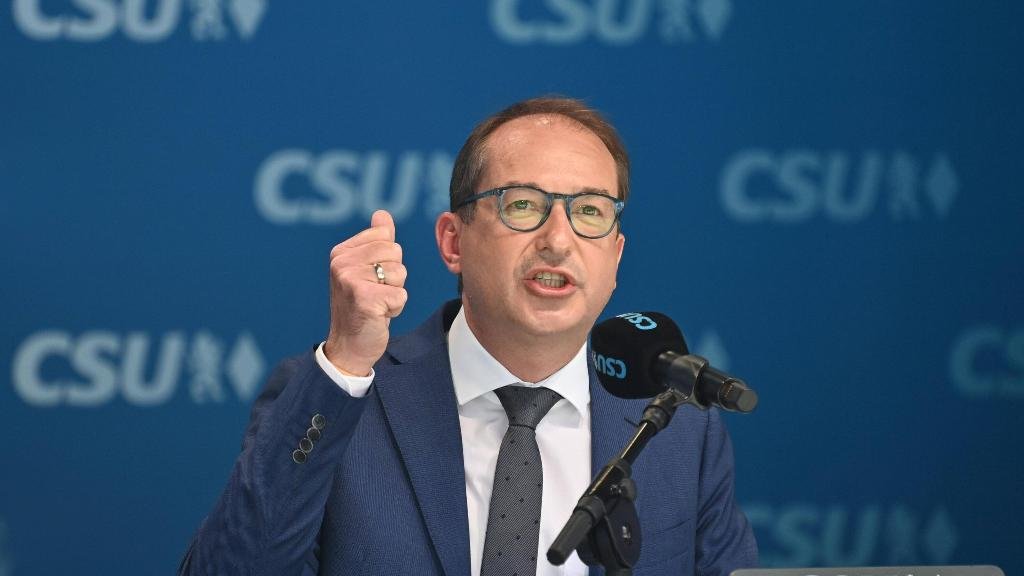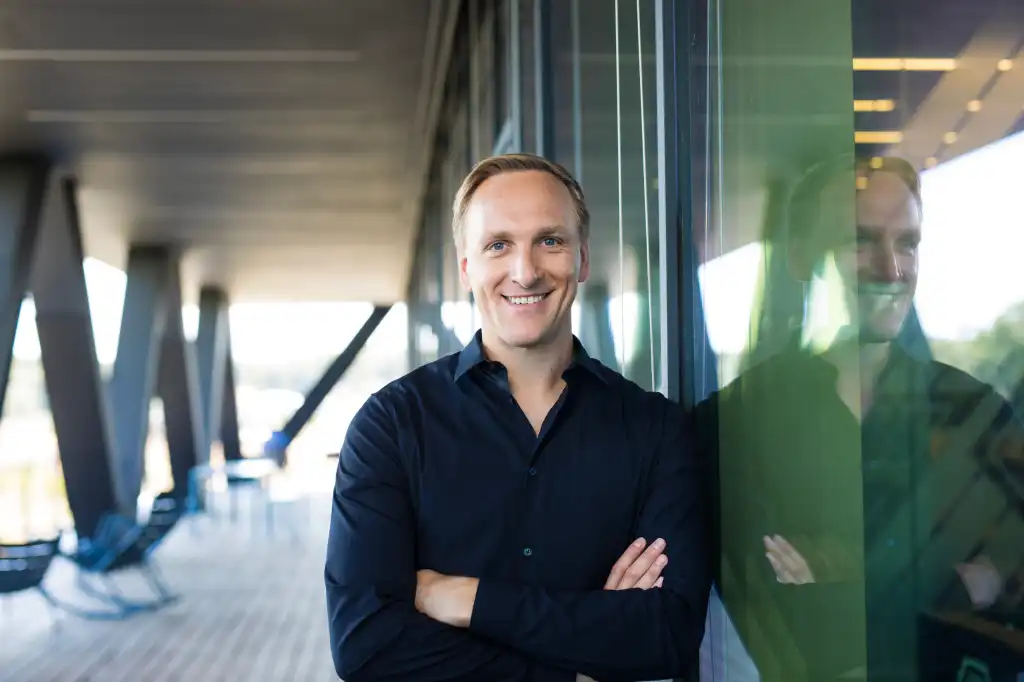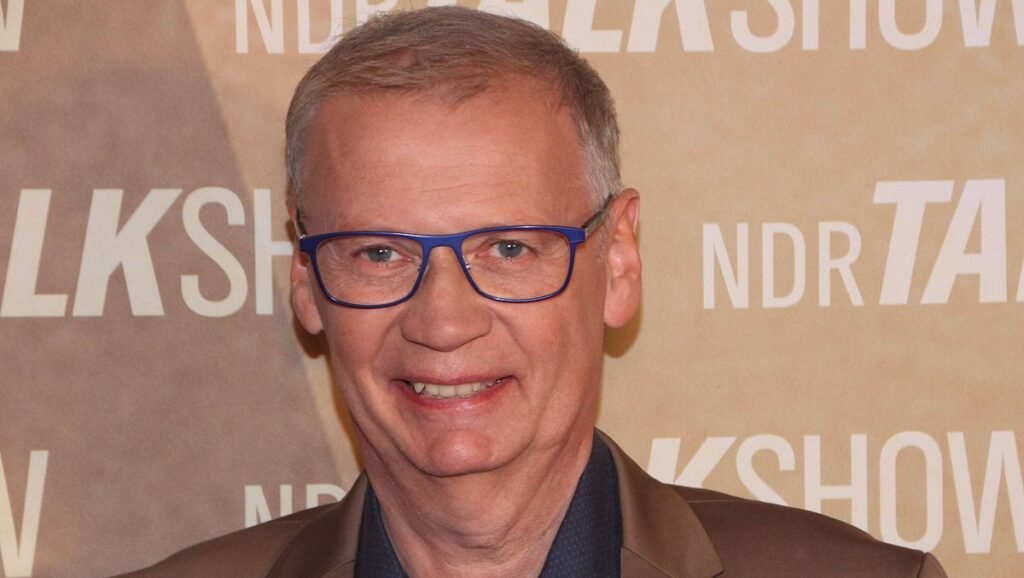Alexander Dobrindt is a well-known German politician who has been serving in the Christian Social Union (CSU), a sister party of the Christian Democratic Union (CDU). He has held several important positions in the German government and is a key figure in shaping policies, especially in areas related to transport, digital infrastructure, and internal affairs. Dobrindt is recognized for his leadership abilities and his significant contributions to the development of infrastructure in Germany.
He has served as the Federal Minister of Transport and Digital Infrastructure and currently holds the position of Chairman of the CSU Parliamentary Group in the German Bundestag (Federal Parliament). Over the years, Dobrindt has made a strong impact on both regional and national levels.
| Full Name | Alexander Dobrindt |
|---|---|
| Date of Birth | June 7, 1970 |
| Place of Birth | Peißenberg, Bavaria, Germany |
| Political Party | Christian Social Union (CSU) |
| Position | Chairman of the CSU Parliamentary Group (since 2017) |
| Previous Role | Federal Minister of Transport and Digital Infrastructure (2013-2017) |
| Education | Sociology, Ludwig Maximilian University of Munich |
| Net Worth | €2 million (as of 2023) |
| Spouse | Daniela Dobrindt |
| Children | 1 child |
Early Life and Background
Alexander Dobrindt was born on June 7, 1970, in Peißenberg, a small town in Bavaria, Germany. His early life was influenced by the political culture in Bavaria, a state known for its conservative values and strong regional identity. Growing up in Bavaria played a major role in shaping his political beliefs and his career in politics.
He completed his high school education in Peißenberg and then went on to study Sociology at the Ludwig Maximilian University of Munich. He graduated with a degree in Sociology, which gave him a strong foundation in understanding societal structures, human behavior, and political science. His academic background helped him later in his political career, where he had to deal with complex issues such as digitalization and transport policies.
Dobrindt’s involvement in politics began early in life. He joined the Junge Union, the youth wing of the Christian Social Union, during his college years. This was the starting point of his political journey, and it allowed him to gain experience and build important connections within the CSU.
Professional Life and Political Career
Alexander Dobrindt’s professional life is centered around his political career. His rise in politics was steady, and he earned respect within the CSU for his hard work and dedication.
Early Political Career
Dobrindt’s political journey started with local involvement in Bavaria. In 1994, he became a member of the municipal council in his hometown of Peißenberg. This local involvement allowed him to gain first-hand experience in dealing with issues that affected his community, such as infrastructure, education, and public services.
After proving his leadership capabilities at the local level, Dobrindt’s career progressed. He was elected to the Bundestag in 2002 as a representative of the constituency of Weilheim-Schongau. From there, he started working on various political committees and gaining experience in areas like economy and infrastructure. He became a member of several parliamentary committees and quickly established himself as an expert in economic and transport policies.
Minister of Transport and Digital Infrastructure
One of the most important phases of Dobrindt’s career came in 2013, when he was appointed the Federal Minister of Transport and Digital Infrastructure. This role was a turning point for him and gave him national prominence. In this role, Dobrindt was responsible for shaping Germany’s transport policies and for overseeing the digital infrastructure of the country.
During his time as Minister, Dobrindt introduced several initiatives to modernize Germany’s transport system. One of his most notable projects was the introduction of a toll system for trucks on Germany’s highways. He also worked on improving the country’s digital connectivity, focusing on expanding broadband internet access to rural areas. Under his leadership, several key infrastructure projects were initiated, which were crucial for improving Germany’s economic competitiveness.
Dobrindt’s tenure as Minister also saw him advocate for the development of automated driving technology, positioning Germany as a global leader in the field of autonomous vehicles. His focus on modernizing infrastructure was not limited to transport alone but also included the digital sector, where he emphasized the importance of data protection and cybersecurity.
Chairman of the CSU Parliamentary Group
After serving as Minister, Dobrindt transitioned to another key role in the German political landscape. In 2017, he became the Chairman of the CSU Parliamentary Group in the Bundestag. This role gave him significant influence over legislative processes and allowed him to shape the political agenda of the CSU within the federal parliament.
As Chairman, Dobrindt focused on a wide range of issues, including internal security, migration policies, and economic growth. He has been a strong advocate for conservative values, while also pushing for innovation in the digital economy and infrastructure development.
Personal Life
Alexander Dobrindt is known to be a private person when it comes to his personal life. He is married to Daniela Dobrindt, and together they have one child. The family is known for keeping a low profile, preferring to stay out of the media spotlight.
Dobrindt enjoys spending time with his family and is also a passionate fan of soccer. In his free time, he supports the local soccer team in Bavaria. His Bavarian roots play an important role in his life, and he maintains a close connection with his hometown of Peißenberg.
Achievements
Throughout his career, Alexander Dobrindt has achieved numerous milestones, both as a politician and as a leader within the CSU.
- Modernizing Germany’s Transport System: As Federal Minister of Transport, Dobrindt played a significant role in modernizing the country’s transport infrastructure. He introduced the toll system for trucks, improved road networks, and advocated for the development of autonomous driving technologies.
- Digital Infrastructure Expansion: Dobrindt’s efforts to improve digital infrastructure in Germany, particularly in rural areas, helped to reduce the digital divide and improve access to high-speed internet across the country.
- Political Leadership: As the Chairman of the CSU Parliamentary Group, Dobrindt has been influential in shaping the political direction of his party and has been involved in major legislative initiatives, including those related to migration, internal security, and economic policies.
Alexander Dobrindt Net Worth
| Year | Net Worth (in Euros) |
|---|---|
| 2018 | €1.5 million |
| 2019 | €1.6 million |
| 2020 | €1.7 million |
| 2021 | €1.8 million |
| 2022 | €1.9 million |
| 2023 | €2 million |
Alexander Dobrindt’s net worth is estimated to be around €2 million. His primary source of income comes from his salary as a politician. As a member of the Bundestag, Dobrindt receives a regular salary, which is supplemented by various allowances for his work in different governmental roles.
In addition to his salary as a politician, Dobrindt has held various positions in the CSU, where he may have received additional compensation. His role as Federal Minister also provided him with a higher salary, given the responsibilities associated with managing the country’s transport and digital infrastructure sectors.
It is important to note that German politicians are also entitled to a pension after they retire, which provides them with financial security in the long term. This pension is based on the number of years they have served in the government.
Dobrindt has not been known to have any significant business investments or other external sources of income. His financial standing is primarily derived from his political career and public service roles.
Other Aspects of His Life
In addition to his work in politics, Dobrindt has been involved in various social causes. He has shown support for initiatives that promote the development of infrastructure and the digital economy in rural areas of Germany. His policies have aimed to reduce the gap between urban and rural regions, ensuring that all citizens have access to modern services and infrastructure.
Dobrindt is also an advocate for conservative values within Germany, particularly those related to family, security, and economic stability. He believes in the importance of maintaining traditional values while embracing technological advancements.
Conclusion
In summary, Alexander Dobrindt is a prominent German politician known for his contributions to transport and digital infrastructure. His early life in Bavaria, education in sociology, and passion for politics have shaped his career. From his role as Federal Minister of Transport to his current position as Chairman of the CSU Parliamentary Group, Dobrindt has played a significant part in modernizing Germany’s infrastructure and shaping the political landscape.







